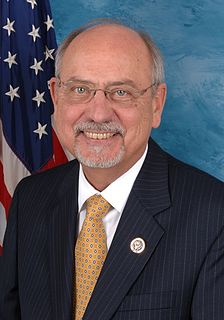A Quote by Chuck Norris
Veterans are generally reluctant to seek mental health care.
Quote Topics
Related Quotes
One of the things we need to do is address mental health care as an integral part of primary care. People often aren't able to navigate a separate system, so you see successful models where a primary care physician is able to identify, diagnose, and concurrently help people get mental health treatment who have mental health issues.
The Republican tax cut threatens to undercut both veterans health care and the veterans educational benefits that have been recognized for decades as not only the long-standing obligation of the Nation to its veterans, but also as the best recruiting incentives we can offer to keep our armed forces strong and sharp.
I would love to see more investment to help our veterans. Donald Trump is talking about investing in the military - I imagine he wants to invest on the war side, but what we really need is to take care of our veterans, and invest in the VA hospitals, provide better mental health treatment, and help them find housing. That is a stain on America for all of us - Republican and Democrat.
One of the issues I think is very important, in many communities of color, there's a stigma about mental health. We find that the shaming that comes from acknowledging that one may have some issues that may relate to mental health, often people are not willing to go and seek additional help because of that shaming or that cultural stigma that's associated with it. And I think that we need to make this change in how people approach mental health.
If you want to look at a purely socialized health care, you would have to go to the United States, where we have it. In particular, that's the system we reserve for our veterans. So if I hear politicians run down socialized medicine - and I have done that before the Congress - I say: Do you hate your veterans? Why do you reserve purely socialized medicine - there's only the U.S. and Cuba that have that - for the veterans? So getting the terms right would be very, very helpful in our national conversation on health reform.
I support defunding the police - particularly the militarization of our police force and reallocating those resources toward public health. And not just health care but mental health support, affordable housing, education, alternatives to incarceration, non-emergency responses to those who might be in mental distress.


































